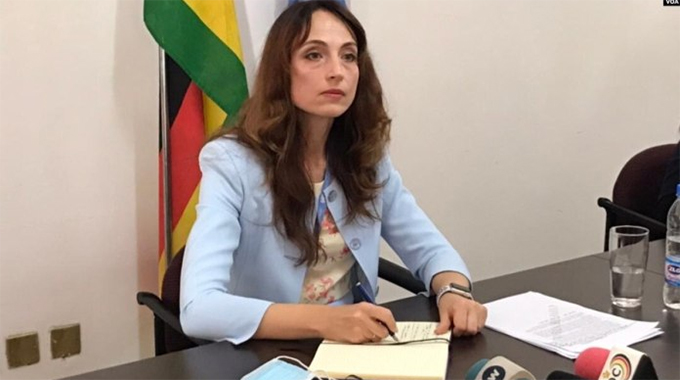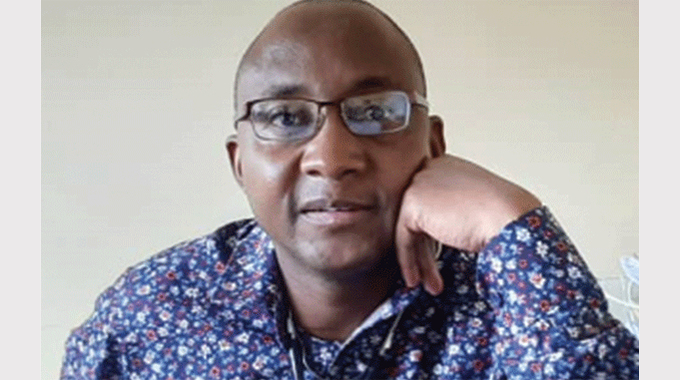Zimbabwe charts new path despite yoke of sanctions

Fungi Kwaramba-Political Editor
WORLD over, and for ages, sanctions have been used as an instrument of war, especially by countries at war, the primary objective being to force the adversary to capitulate.
But for over two decades now, Zimbabwe, a sovereign State, not at war with anyone, has been a victim of a battery of baneful sanctions that have bled the country, choked industrialisation, blunted modernisation, battered the health sector and caused unemployment rates to soar.
It is trite that the sanctions were imposed by the United States and her allies at the turn of the millennium as punishment for the land reform programme to spite the Zanu PF Government for fulfilling its war promise, that is, to reunite the black majority with their God-given ancestral land that had been stolen during colonialism without any form of compensation.
For sanctions denialists, apologists of Western interests, and even those who may want to know the truth, sanctions, that were introduced around 2000, have cost Zimbabwe US$100 billion while the cost of borrowing is over 1 000 percent higher than the average in most countries.
This has worsened the burden on the Government to provide basic social services such as water, health, and education, a mess that has ruined livelihoods of the country’s populace.
In a report on sanctions, Professor Alena Douhan, the Special Rapporteur on the negative impact of unilateral coercive measures on the enjoyment of human rights, observed that “as a result of the designation of senior State officials and companies owned or controlled by them, foreign companies and banks are unwilling to do business with the public sector of Zimbabwe, preventing the Government from getting revenue for the exercise of its public functions and provision of essential services, resulting in the violation of labour and social rights of people involved in the public sector, whose salaries are reported to be much lower than in the private sphere.
“This has led to rising unemployment, especially among the most qualified professionals, including engineers, doctors, teachers, university professors, judges, and police officers.
“Unilateral sanctions have also prevented the Government from using resources to develop and maintain essential infrastructure, disaster response plans, and social support programmes, which has a devastating effect on the whole population of Zimbabwe, especially those in extreme poverty, women, young people, children, medical workers and people with disabilities or life-threatening or chronic diseases, particularly in rural areas.
“Low salaries, unemployment and growing involvement in the informal economy result in migration to neighbouring countries and an increase in poverty, criminal activities, corruption, prostitution, trafficking in persons, sexual exploitation, and drug abuse, especially among the most vulnerable, including women, young people and children.”
Apart from the primary sanctions that were imposed by the Western world as punishment for the land reform programme, there are also secondary sanctions that have seen financial institutions being fined to the tune of US$3,8 billion by the United States’ Office of Foreign Assets Control.
So debilitating has been the sanctions package that multilateral financing from institutions such as the World Bank and the Africa Development Bank has ceased – with dire ripple effects on the lives and livelihoods of Zimbabwe.
Therefore, it is utterly irresponsible for any Zimbabwean to contend that the challenges that Zimbabwe is grappling with are not a result of the heinous sanctions that were imposed in the form of the diabolical and misnamed Zimbabwe Democracy and Economic Recovery Act (ZIDERA), that was passed by the US in 2001 with amendments along the years.
One just needs to revisit a statement that was made by former US assistant of State for African Affairs, Mr Chester Crocker, during the self-serving hearings of ZIDERA that “to separate the Zimbabwean people from Zanu PF, we are going to have to make their economy scream, and I hope you, Senators, have the stomach for what we have to do”.
Indeed, Zimbabwe’s economy has for the past two years “screamed” under the deleterious effects of sanctions that have left hospitals without medicines, schools without teachers, roads with little maintenance and basically basic services at their lowest.
But the unilateral ZIDERA is in contravention of international law which stipulates that unilateral measures without or beyond authorisation of the UN Security Council may only be taken when they comply with states’ international legal obligations or in the course of countermeasures in accordance with the rules of law of international responsibility: to be applied against states for violations of international legal norms, to aim to restore the fulfilment of international obligations, to be proportional to the breach occurred, to be necessary, and to not violate fundamental human rights.
Apart from this being a crude interference into the domestic affairs of a sovereign country and breaching the United Nations Charter and other international statutes, ZIDERA has been brutal in its effects on ordinary people.
This is why sanctions have inflicted very significant harm upon lives and livelihoods, impeded socio-economic development, and severely undermined Government’s capacity to more effectively fulfil its obligations with regard to the provision of affordable basic services.
Recently, Harare’s envoy to the United Nations in Geneva, Ambassador Stuart Comberbach, told the United Nations Human Rights Council that the magnitude of the sanctions has been shattering.
Because of the illegal economic sanctions, Zimbabwe is now completely cut-off from sources of international finance, affordable trade-credit facilities, and longer-term concessionary funding essential to develop, modernise, industrialise and compete effectively within both a continental and global setting.
Although the effects of sanctions have been biting, the advent of the Second Republic has birthed a new approach to Foreign Affairs, where President Mnangagwa has made it his mission to engage with all nations, even those that still maintain the illegal sanctions.
At the burial of national hero Cde Heighten Nkomo on Monday, President Mnangagwa called upon “some of the Western countries pursuing a confrontational approach in relating with Zimbabwe to turn a new leaf.
“Guided by our Engagement and Re-engagement Policy, Zimbabwe is committed to being a friend to all and an enemy of none”.
This is turning out to be the defining trait of his Government approach, which is opening new embassies the world over, building bridges, and healing once festering wounds.
This is not a show on the international front alone where structured dialogue is the guiding principle on an equal footing, but also domestically where he has roped in his political rivals to form the Political Actors Dialogue (POLAD).
President Mnangagwa has proved that he is a listening President through engagements, not only with political actors but also with ordinary persons, with whom he interfaces, on a regular basis as he implements development that leaves no one and no place behind.
While some nations specifically, European Union member states, are softening their stance, the US regrettably continues with its confrontational approach.
Impervious to the deafening calls for the unconditional removal of the unjust economic sanctions, the US prances on with its unilateralism which seeks to impose one’s country’s view, norms, and beliefs on the entire world, only that cannot be as many countries see beyond the veil of US democracy and into its hidden demons like sanctions.
Even though some countries are still submitting themselves to the US, expecting a few trinkets and adulation, Zimbabwe has proved to be resolute in calling for symmetrical relations with global countries including America.
It is in this light that Zimbabwe has resisted getting sprawled in Western mud of fables and fabrications that are expressed rather violently in sanctions, themselves an asymmetrical war on a nation that seeks nothing but peace.
As President Mnangagwa said, despite the burden of sanctions, Zimbabwe is charting a new path on the plinth of the principles, “Nyika Inovakwa Nevene vayo and Zimbabwe inovakwa nekutongwa nesu vana veZimbabwe”.
We are a friend to all and an enemy to none.










Comments